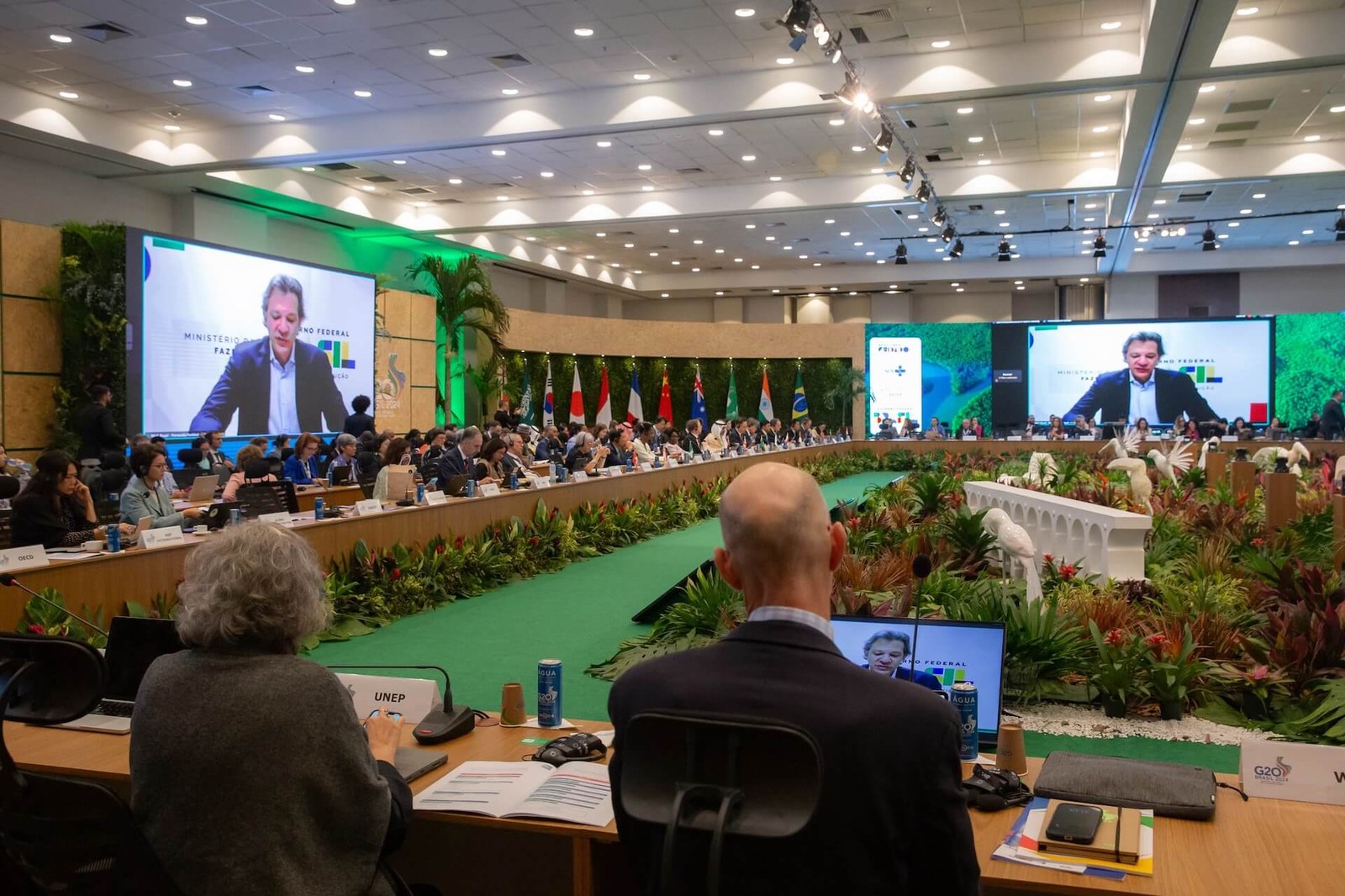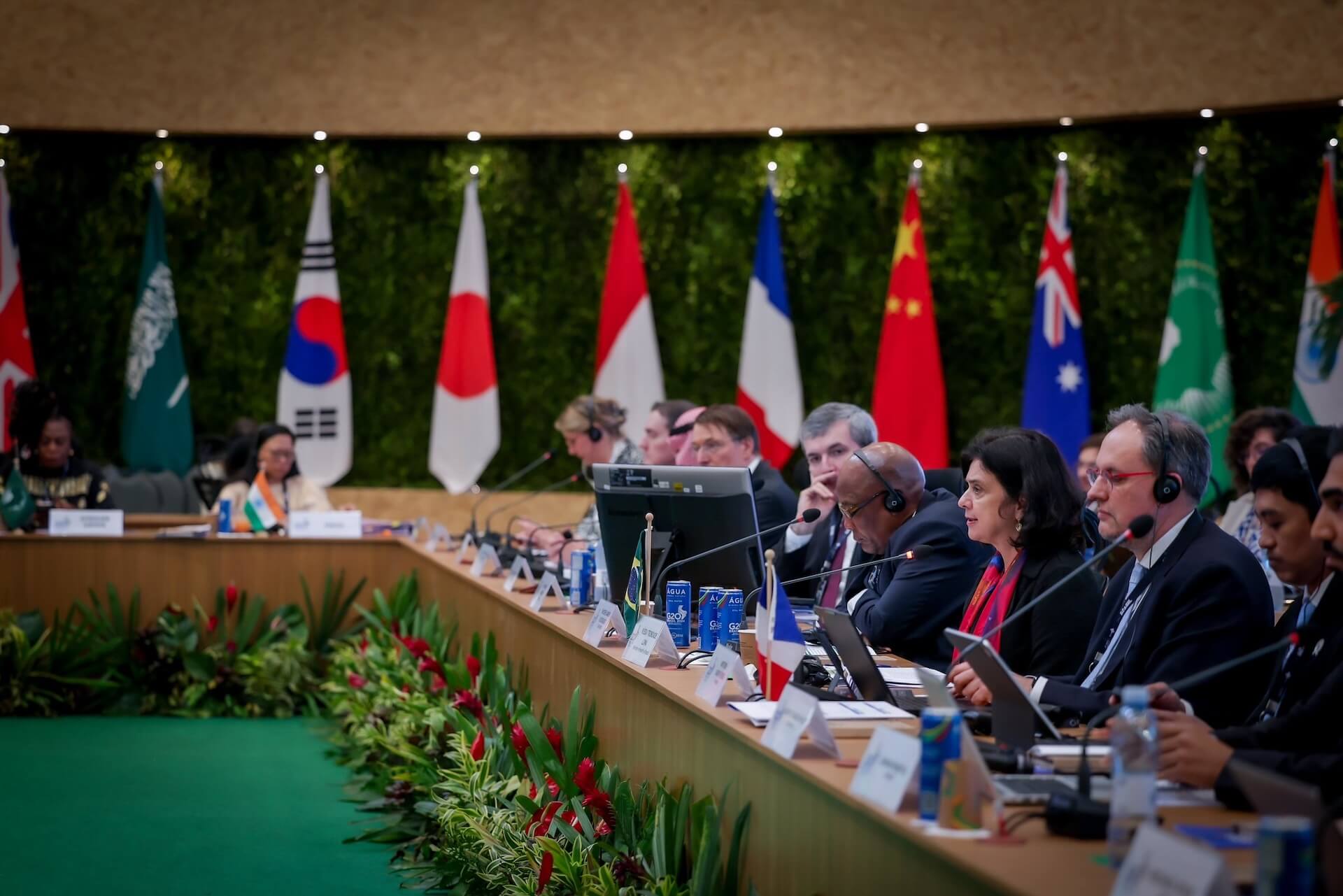The final document of the G20 Finance and Health ministerial meeting highlights fighting inequalities and preparing for future pandemics
At a meeting in Rio de Janeiro, G20 ministers call for investments in health to deal with crises. Brasil is leading efforts on social inclusion, and Brazilian ministers Nísia Trindade (Health) and Fernando Haddad (Finance) are reinforcing global sustainability.

At the conclusion of the ministerial meeting of the G20 Joint Finance and Health Task Force held in Rio de Janeiro, health and finance ministers of the member countries discussed initiatives to strengthen the coordination between these sectors and increase investments in health. The meeting concluded the activities of the Task Force under Brasil's G20 presidency, which prioritized social inclusion and the fight against hunger and poverty.
The final document emphasized the importance of robust investments in health systems to deal with future crises and keep the global economy stable. Some of the main priorities in 2024 were funding for the social determinants of health, such as food security and living conditions, which directly affect the well-being and resilience of populations. The meeting also raised the potential of “Debt-to-health” agreements as a financial tool to help governments invest in public health, especially in countries where debt constrains essential resources.
Brasil's presidency pointed out that the COVID-19 pandemic has left important lessons for combating future pandemics, including the need to prepare resilient health systems. In this regard, the Global Report on Vulnerabilities and Risks, which assesses health and social risks, was presented, as well as a first draft of the Operational Manual for Pandemic Response Financing. These tools are intended to guide governments and facilitate rapid and coordinated responses to future health emergencies.
During the meeting, there was recognition of the joint work with the Africa Centres for Disease Control and Prevention (CDC) and the World Health Organization (WHO) in responding to the outbreak of Mpox, also known as monkeypox, recently classified as a Public Health Emergency. The meeting also highlighted the creation of a funding tracker to identify gaps and facilitate financial support for the most affected countries, especially on the African continent, which faces challenges such as low health system resilience and high direct spending on medical care.
The ministers stressed the importance of the rapid transition from funding pledges to concrete actions, emphasizing the need for coordination with local governments and alignment with national response plans. The World Health Organization, the World Bank, the United Nations Conference on Trade and Development (UNCTAD), and the Rockefeller Foundation were recognized for their technical contributions. The WHO, in particular, was praised for its central role in the global health architecture. The countries' commitment to strengthening this structure includes ensuring adequate and predictable funding for WHO, as well as concluding negotiations on a pandemic agreement.

Health Equity: a priority in the discussions of the Task Force
Brasil's Minister of Health, Nísia Trindade, emphasized the importance of health equity as a priority of the group and as a transversal principle in global discussions. According to her, the search for equal access to health services and products is one of the main objectives of the G20, ranging from digital health to local production for the treatment of neglected diseases. "Health equity is one of our priorities and a transversal principle in all the discussions we are promoting," stated Nísia. “From climate change and its impacts on health to the health workforce and the One Health approach, we need to tackle inequalities and protect our most vulnerable populations,” she said.
The minister also emphasized the need for collaboration between the Finance and Health sectors to strengthen societies' resilience. According to Nísia, investment in health is essential to protect populations and strengthen global economies. "Health is an investment that will help protect our societies and strengthen our economies," she noted.
Regarding debts and the financing of health systems, the Brazilian minister emphasized the importance of the "Debt-to-health swap" instrument, which allows part of the debts to be converted into investments for the sector. However, she warned that such instruments should complement rather than replace the efforts to restructure debt. "There is consensus on the importance of maintaining a voluntary basis for participation in debt-for-health swaps and aligning them with larger international health and development financing structures to maximize their impact," she explained.
Haddad highlights Brasil's commitment to social inclusion and sustainability
The Minister of Finance, Fernando Haddad, attended the meeting via videoconference. He highlighted Brasil's central goal for the G20: building a just and sustainable world. For Haddad, this commitment guided the financial group's activities throughout the year, driving the search for mechanisms that promote social inclusion and sustainable development.
Considering the increasing economic and social challenges, the minister said that the recent crises – economic, health, and climate – have worsened the effects of inequality on the most vulnerable populations. “We can't lose sight of the fact that economic and social inequality exacerbates the impacts of economic crises, pandemics, extreme weather events and geopolitical conflicts,” said Haddad, noting that the G20 is a fundamental space to work together for health as an essential global public good.
The COVID-19 pandemic was a major focus of the minister's speech, who recalled the importance of international cooperation. “The pandemic has brought us several lessons, and one of the most valuable is the reaffirmation of the centrality of international cooperation,” he pointed out, taking the opportunity to express solidarity with the African countries affected by the Mpox outbreak and to acknowledge the agility of the G20 countries in supporting the efforts to combat the emergency, in response to the call from the WHO and the Africa Centres for Disease Control.
At the end of the meeting, the ministers welcomed South Africa as the next G20 president and the African Union, which recently became a permanent group member.
Translated by PGET-UFSC